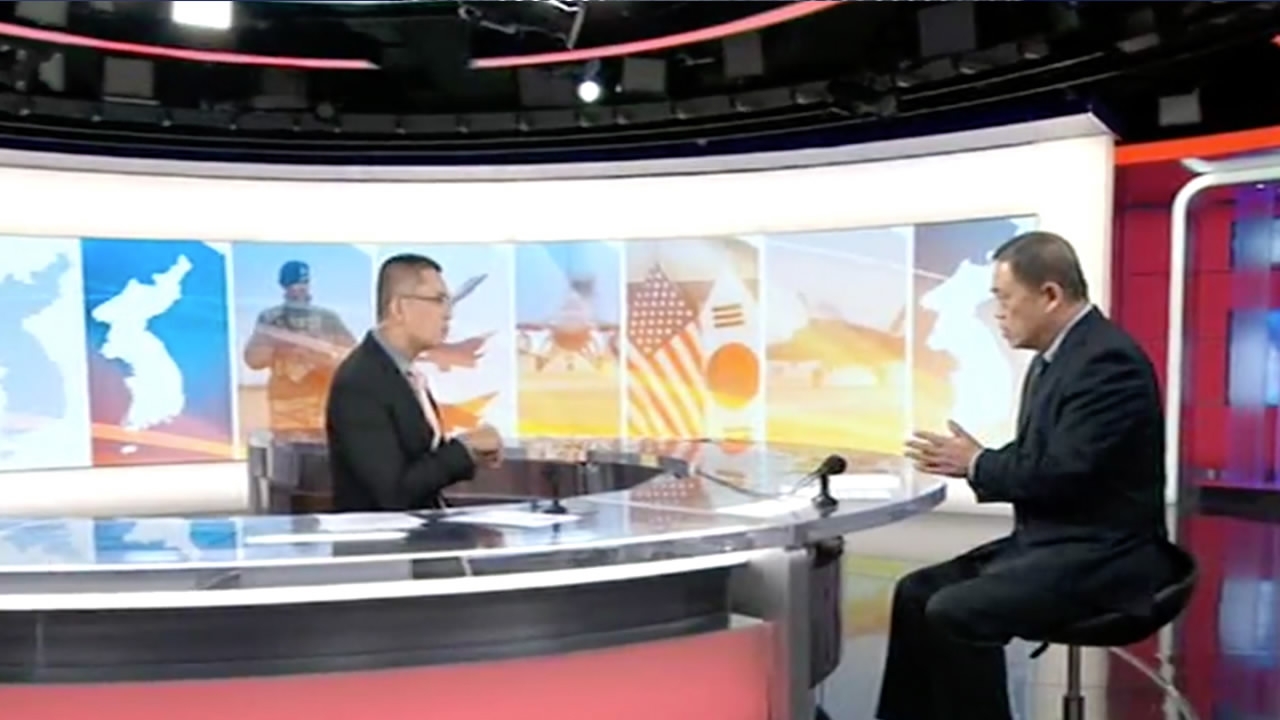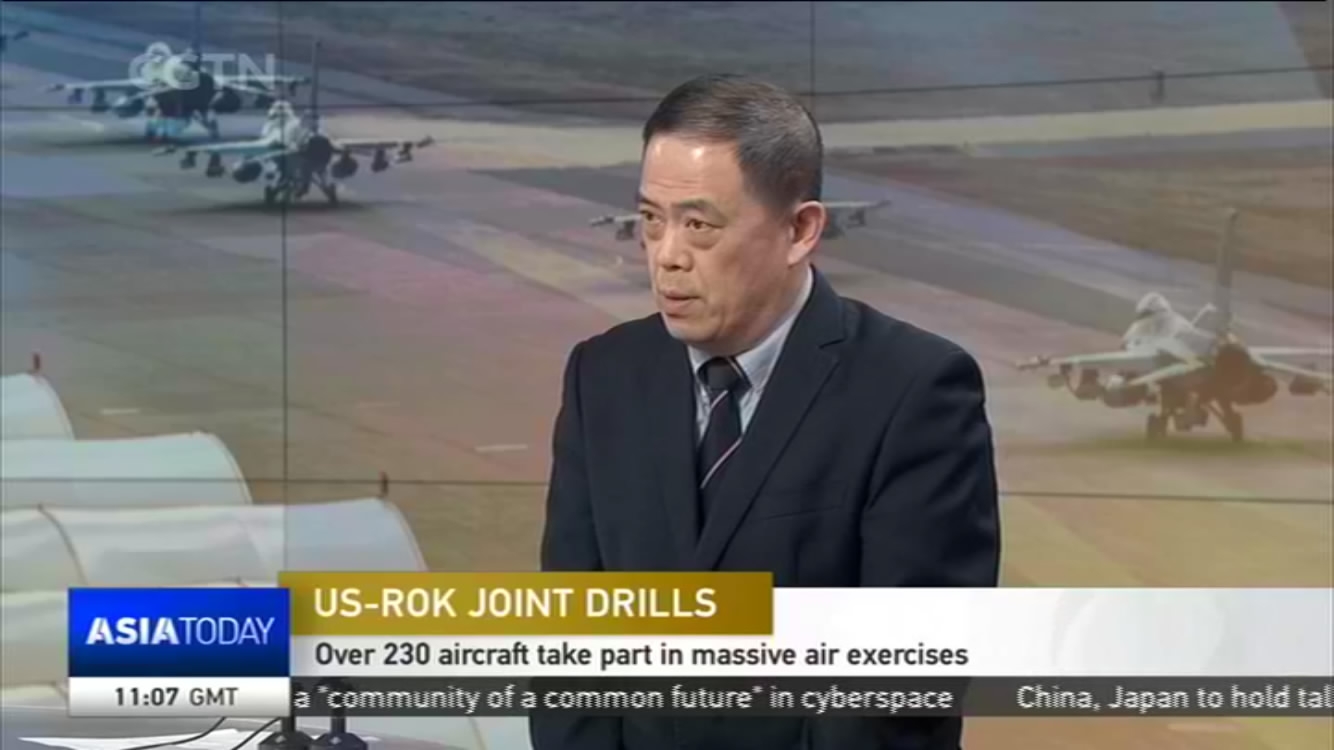
World
13:52, 05-Dec-2017
How close are the DPRK and the US to all-out war?
CGTN

By CGTN's Asia Today
“This is actually a moment for the countries to go to war, so we should be very careful and try our best to maintain peace and stability,” Teng Jianqun, Director of the Center for Arms Control of the China Institute of International Studies, told CGTN’s Asia Today regarding rising tensions on the Korean Peninsula.
His comments come after the United States and its ally South Korea launched the annual Vigilant Ace military drills on Monday.
With over 230 aircraft participating in the biggest exercise staged by the two countries so far, the drills come a week after the Democratic People's Republic of Korea (DPRK) test-fired its most advanced missile yet.

But Teng said this is not just a simple response to last week’s launch.
“In 2015, the two countries adopted an Operation Plan named ‘5015’, four stages will be taken in the coming operation against the DPRK,” Teng explained.
While precise details of OPLAN 5015 remain classified, some details have emerged in the South Korean and Japanese media. The plan would reportedly see a preventive strike on the North's core military facilities and weapons as well as its top leaders. It has also been reported that a preemptive strike on the DPRK may be a possibility.
After the DPRK test-fired the new ICBM Hwasong-15 in late November, Pyongyang claimed it was capable of reaching the entire US mainland.

Teng Jianqun, Director of the Center for Arms Control of the China Institute of International Studies. /CGTN Screenshot
Teng Jianqun, Director of the Center for Arms Control of the China Institute of International Studies. /CGTN Screenshot
In response, Foreign Minister Wang Yi maintained China’s opposition to the DPRK’s nuclear program and said it was with “great regret that countries involved have failed to seize the opportunity provided on China’s appeal.”
Teng also confirmed that the threat assessment of the US government has been changed as a result of this latest nuclear threat, which “has been a direct and real threat to the United States”.
Asia Today is a 30-minute news and current affairs show on CGTN with a focus on issues in the Asia-Pacific region. It airs daily at 7.00 p.m. BJT (1100GMT) with no rebroadcast.
809km

SITEMAP
Copyright © 2018 CGTN. Beijing ICP prepared NO.16065310-3
Copyright © 2018 CGTN. Beijing ICP prepared NO.16065310-3